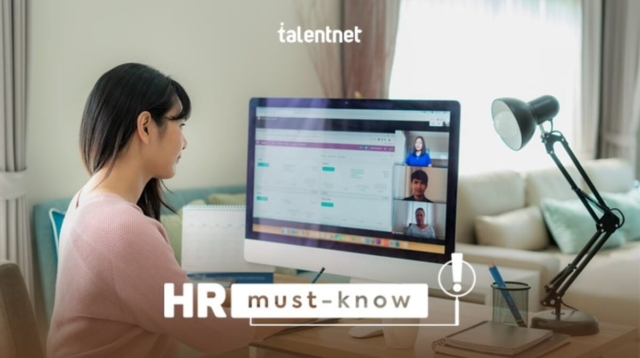#HRmust-know: Getting Your Feet Wet With Remote Culture

December 12, 2021
Remote culture is formed by social behaviour, norms and values in any digital business environment between associates who are bound by similar objectives, interests and attitudes. Like all other cultures, remote culture is something you can only truly understand once you've experienced it comprehensively.


Typically, remote culture is a continuing process that aims to facilitate among workers joy in their jobs, have a sense of belonging while people are still in their own place. Even when people don’t see each other often, this feeling of closeness still endures. Therefore, businesses may develop a remote culture in every aspect, and this comprehensive article can assist in deepening your understanding of remote culture.
1. Key aspects of remote culture
According to Remote – an international-based HR platform, remote work culture can be a solid basis to any organization if it has two main elements:
- Empowered humility
It may sound contradictory to combine the concepts of empowering and humility as those seem to be counterparts, yet empowered humility keeps the wheels turning in excellent remote culture environments.
A person who feels empowered will not be waiting for authorization to research or take care of a prospective invention. Empowered employees understand that they are supported by their colleagues and superiors, which allows them to feel confident in their jobs. Meanwhile, they also humbly understand that it is at the stage of cooperation that the best work is accomplished, not during the stage of ideas. Thus, those who labour with humility often complete their jobs successfully and take a step back to judge their own work critically. They also invite constructive feedback from others without feeling personally attacked.
- Diversity in connectivity
Remote culture firmly believes in the value of various points of view. Generally, a business with a diverse workforce is made up of workers from many nationalities with different backgrounds. The leaders have to ensure that every individual strives towards a common goal with defined principles while experiencing a sense of welcoming and engagement. The most successful remote needs to make up for deliberate efforts and supportive contributions from everyone. Moreover, they make it simple for both executives and workers to be engaged in the distant working process, especially in the work-from-home era.

2. Key benefits of remote culture
As the after-effects of COVID-19 continue to leave traces, strengthening business remote culture will be the main priority of many workplaces. SnackNation has provided some perks of remote culture as follows:
- Prevent remote isolation
A strong remote culture binds employees in a shared sense of purpose. This generates comradeship sentiments and also leads to casual activities such as casual talks against isolation.
- Advance business success
The new normal can be partial or total remote work. A recent Gartner CFO survey revealed that, after the COVID-19 pandemic, 74 per cent of chief financial officers intend to move some workers to remote work permanently. As a result, organizations building cultures to tackle remote-work difficulties will reinforce the increasing efforts of changing models while preserving productivity as developments evolve.
- Build long-term connections
It is recommended to prioritize the progress of your remote culture even when your business returns to work on site. As trust and understanding have already been built during interactions through working remotely, onsite operations will happen more smoothly and effectively.

In conclusion, the remote culture of your business determines your capacity to prosper in the new normal environment. Get your leaders ready for the changing world of work – especially the improvement and equipment of virtual communication abilities for distant teams.
If you want to know how to create a remote culture effectively, contact Talentnet and let our experienced consultants advise you. As the leading human resources consulting company in Vietnam, Talentnet is experienced in handling HR-related inquiries, aiming to put people at the heart of long-term business development and help businesses thrive in the new normal.


